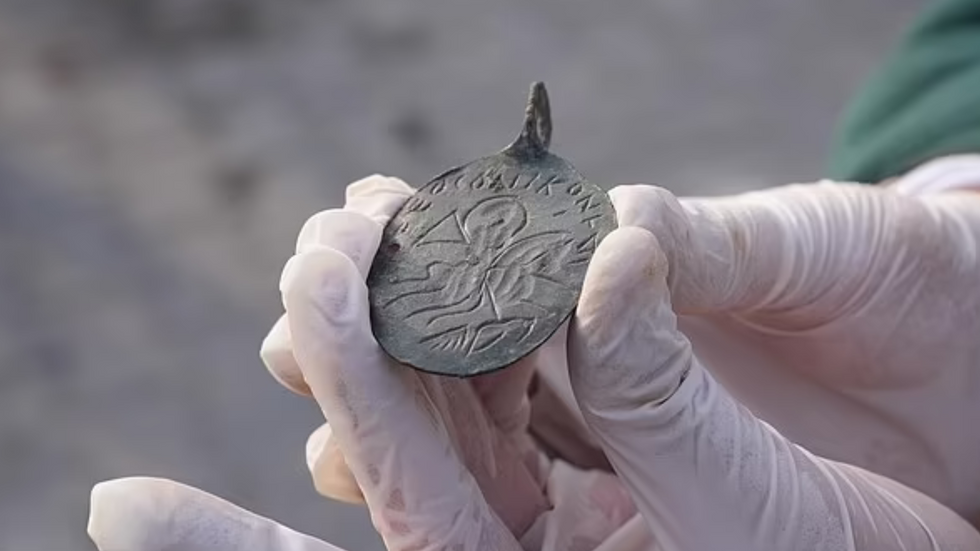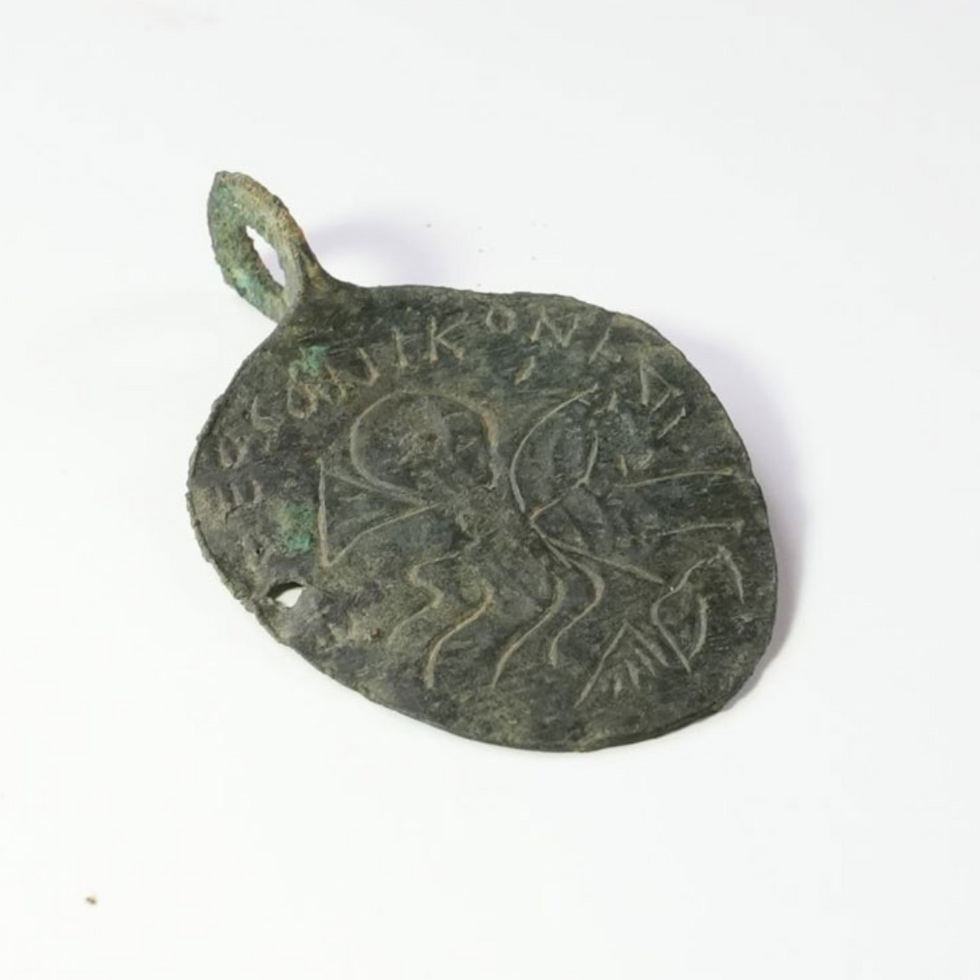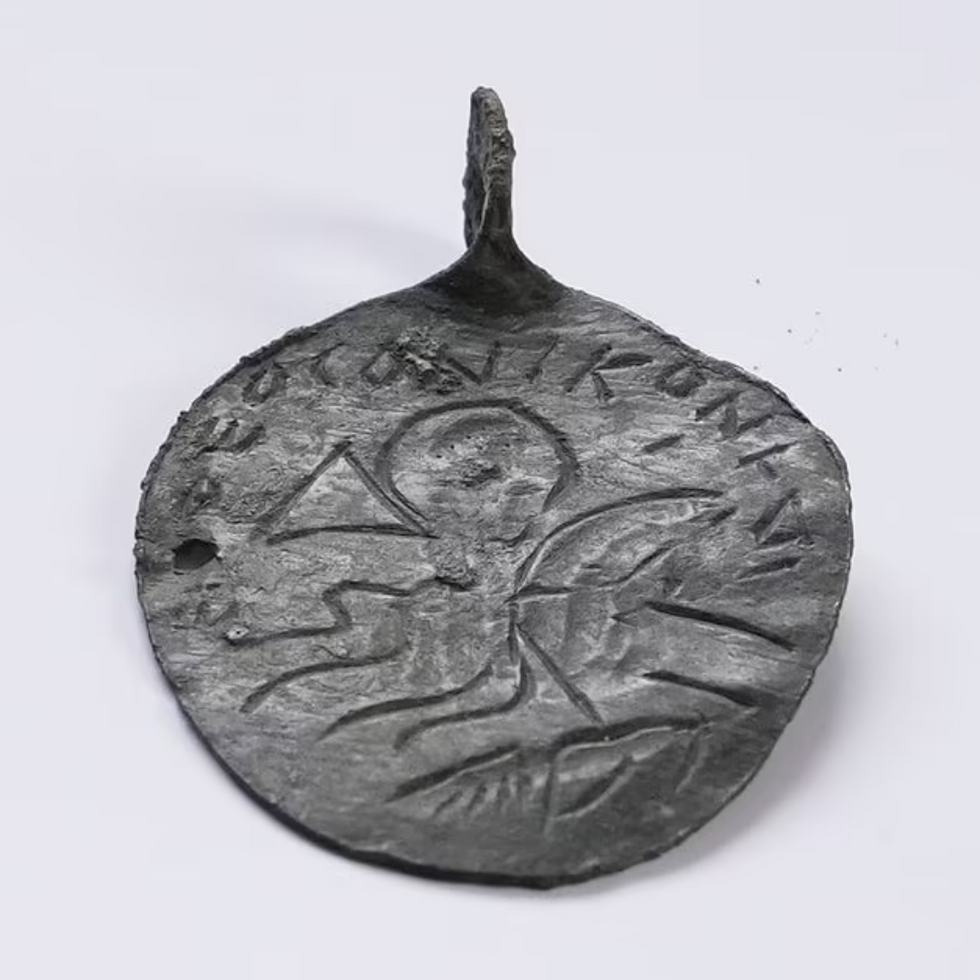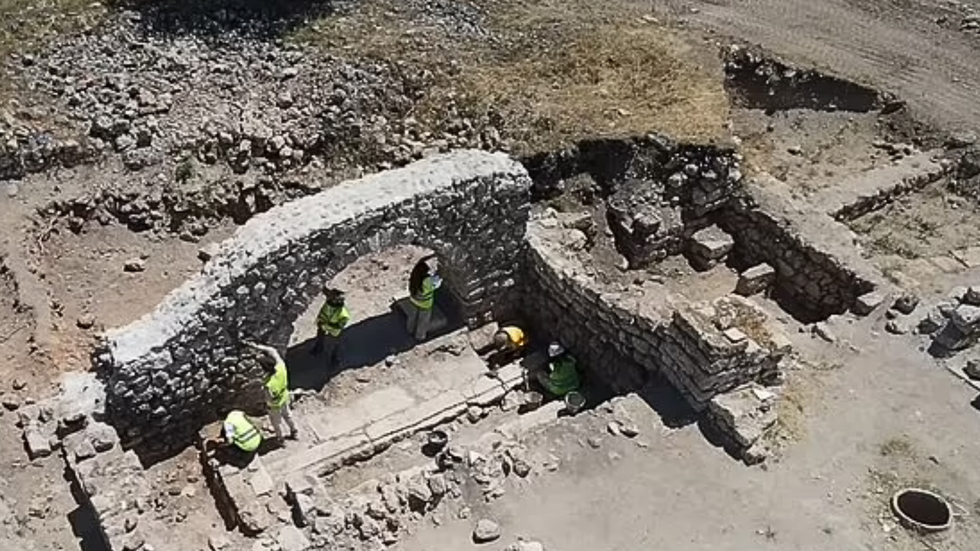Archaeologists in Turkey have discovered a rare 1,600-year-old bronze pendant depicting the biblical King Solomon defeating the devil, potentially shedding light on ancient religious beliefs.
The fifth-century amulet, found in the ancient city of Adrianople, features an ancient Greek inscription reading: "Our Lord defeated the devil".
The remarkable find was unearthed among the ruins of a military structure, suggesting it may have been worn by a Roman or Byzantine soldier seeking divine protection.
The discovery appears to corroborate details from the Testament of Solomon, a religious text written between the first and fifth centuries AD which was ultimately excluded from the canonical Bible.
The newly-discovered amulet could shed light on ancient religious beliefs
KARABUK UNIVERSITY
The amulet features an ancient Greek inscription reading: 'Our Lord defeated the devil'
KARABUK UNIVERSITY
On the reverse side, the names of four holy angels are inscribed: Azrail, known in Islam as the angel of death; Gabriel, God's messenger; Michael, the spiritual warrior; and Israfil, who would signal the Day of Resurrection.
Though the angelic figures hail from different religions, researchers believe the amulet was primarily a Christian artifact.
Associate Professor Dr Ersin Celikbas from Karabuk University's Department of Archaeology said the discovery was unprecedented.
"No similar examples have been found in this geography before," he said.
Pictured: The millennia-old Adrianople amulet
KARABUK UNIVERSITY
"This pendant, used as an amulet, draws attention with the inscriptions on both sides and the depiction on it."
Dr Celikbas added: "Prophet Solomon is an important figure in all three holy religions.
"While he is mentioned as a ruler in the Torah and the Holy Bible, he is also accepted as a prophet in Islam."
The ancient city of Adrianople, originally known as Uskudama, was inhabited by the Thracians from the first century BC to the eighth century AD.
Archaeologists have been excavating the site in modern-day Turkey since 2003
KARABUK UNIVERSITY
The site was later rebuilt by Roman emperor Hadrian around 124 AD - and is now known as Edirne.
Archaeologists have been excavating the site since 2003, uncovering numerous Roman structures including baths, churches, and a theatre.
"Rome planned to make its defence at the far end [of its empire] by building bases against all kinds of dangers that may come from the Black Sea Region to its territory," explained Dr Celikbas.

 By GB News (World News) | Created at 2024-11-21 11:41:19 | Updated at 2024-11-21 14:46:03
3 hours ago
By GB News (World News) | Created at 2024-11-21 11:41:19 | Updated at 2024-11-21 14:46:03
3 hours ago












